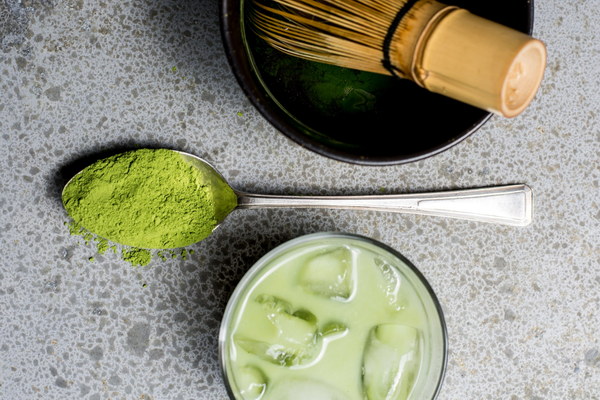Does Steeping Mulberry Leaves in Water Really Purify the Lungs
Introduction:

Mulberry leaves, a common ingredient in traditional Chinese medicine, have been used for centuries for their health benefits. Many people believe that drinking mulberry leaf tea can help purify the lungs and improve respiratory health. But does this claim hold true? In this article, we will explore the potential benefits of mulberry leaves in water for lung purification and examine the scientific evidence behind this popular belief.
Benefits of Mulberry Leaves for Lung Health:
1. Antioxidant Properties: Mulberry leaves are rich in antioxidants, which can help protect the lungs from oxidative stress caused by harmful free radicals. This can reduce the risk of lung diseases such as chronic obstructive pulmonary disease (COPD) and lung cancer.
2. Anti-inflammatory Effects: Mulberry leaves contain compounds that have anti-inflammatory properties, which can help reduce inflammation in the lungs. This can be particularly beneficial for individuals with asthma or chronic bronchitis.
3. Immune System Support: Mulberry leaves have been shown to boost the immune system, which can help the body fight off respiratory infections more effectively. This can lead to a healthier respiratory system overall.
4. Detoxification: Some people believe that drinking mulberry leaf tea can help remove toxins from the lungs, leading to improved lung function. While scientific evidence supporting this claim is limited, it is thought that the diuretic and laxative properties of mulberry leaves may aid in the elimination of waste products from the body.
Scientific Evidence:
1. Antioxidant Studies: Research has shown that mulberry leaves contain a variety of antioxidants, including flavonoids and polyphenols. These compounds have been found to have protective effects on lung cells and may reduce the risk of lung diseases.
2. Anti-inflammatory Studies: Studies have demonstrated that mulberry leaves can reduce inflammation in the lungs. For example, a study published in the Journal of Ethnopharmacology found that mulberry leaf extract significantly reduced airway inflammation in mice with asthma.
3. Immune System Studies: While research on mulberry leaves and the immune system is limited, some studies have suggested that mulberry leaves may help boost immune function. However, more research is needed to confirm these findings.
4. Detoxification Studies: There is little scientific evidence to support the claim that mulberry leaves can detoxify the lungs. Most studies have focused on the antioxidant and anti-inflammatory properties of mulberry leaves, rather than their detoxifying effects.
Conclusion:
While there is some scientific evidence to support the idea that drinking mulberry leaf tea may benefit lung health, it is important to approach this claim with caution. More research is needed to fully understand the potential benefits and risks of mulberry leaves for lung purification. In the meantime, if you are considering incorporating mulberry leaf tea into your daily routine, it is essential to consult with a healthcare professional to ensure it is safe and appropriate for your individual health needs.









